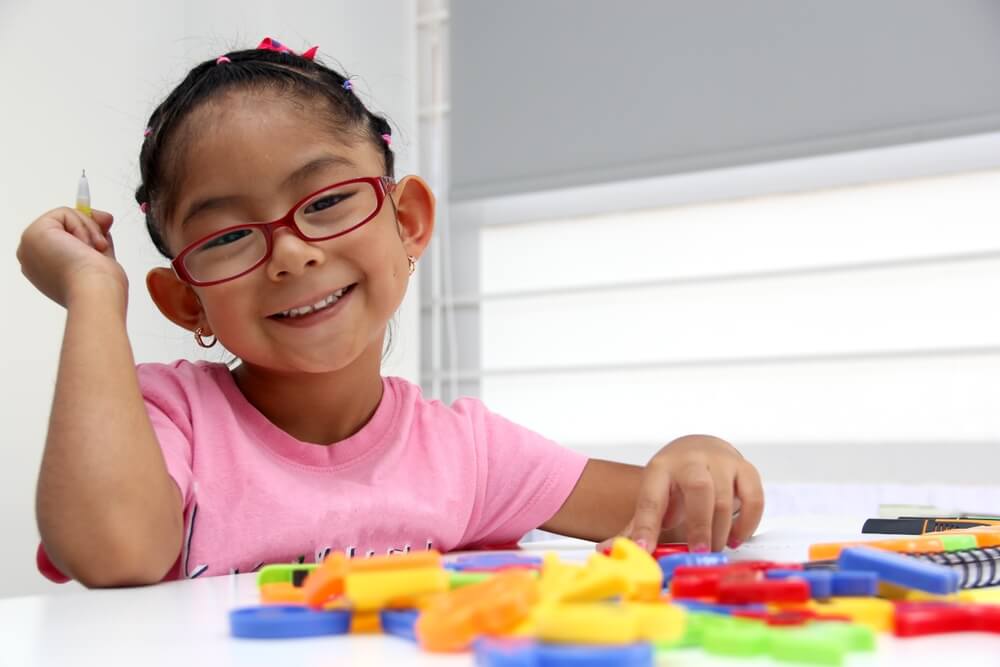Parents often find themselves observing their children’s behaviors, wondering if certain characteristics are typical or indicative of something more. When it comes to concerns about autism spectrum disorder (ASD), early recognition and understanding are crucial.
This comprehensive guide, compiled by the experts at Children’s Medical Center of South Florida, aims to shed light on the signs and symptoms of autism in toddlers, providing valuable insights for parents navigating this journey.
Is My Child Autistic: What is Autism Spectrum Disorder (ASD)?

Autism Spectrum Disorder is a neurodevelopmental condition characterized by a range of challenges in social interaction, communication, and repetitive behaviors. It is called a “spectrum” because individuals with ASD can present a wide variation in strengths, challenges, and abilities. Recognizing the diversity within the autism spectrum is essential in understanding and supporting each child’s unique needs.
Signs of Autism in Toddlers: Early Indicators to Watch For
Social Challenges
- Difficulty with Eye Contact: Some toddlers on the autism spectrum may struggle with making and maintaining eye contact during interactions.
- Limited Social Interaction: A preference for solitary play and challenges in engaging with peers can be early signs.
Communication Differences
- Delayed Speech Development: A lack of or delayed speech milestones might be observed in some toddlers with ASD.
- Difficulty with Non-Verbal Communication: Challenges in using gestures, facial expressions, or understanding non-verbal cues may be noticeable.
Repetitive Behaviors
- Repetitive Movements: Engaging in repetitive movements, such as hand-flapping, rocking, or spinning objects, can be indicative.
- Rigidity in Routine: An insistence on sameness and resistance to changes in routines might be observed.
Sensory Sensitivities
- Heightened Sensitivity: Unusual reactions to sensory stimuli, like a strong aversion to certain textures or sounds, may be present.
- Seeking Sensory Stimulation: On the other hand, some children may seek out specific sensory stimuli intensely.
Symptoms of Autism: Recognizing Patterns and Variances
Autism Spectrum Disorder (ASD) is a neurodevelopmental condition marked by a diverse array of symptoms and behaviors. Understanding the signs, especially in communication, social interaction, repetitive behaviors, and sensory sensitivities, is vital for early recognition and intervention.
Communication Challenges
- Limited Verbal Communication: Some children with autism may experience delays in speech development or may remain non-verbal. This limitation in expressing themselves verbally can be one of the early indicators of autism.
- Echolalia: Echolalia, or the repetition of words or phrases without grasping their meaning, is a characteristic communication pattern in some autistic children. This repetition may serve various functions, such as self-soothing or attempting to communicate.
Social Interaction Differences
- Difficulty with Peer Relationships: Establishing and maintaining friendships can be a significant challenge for children on the autism spectrum. Social cues that typically facilitate relationships may be challenging to interpret or respond to appropriately.
- Lack of Social Imagination: A notable symptom is the difficulty in engaging in imaginative or pretend play. Children with autism may struggle with creative and symbolic play, preferring routines or activities that are more concrete.
Repetitive Behaviors and Interests
- Intense Focus: Many children with autism display an intense focus on specific subjects or activities. This hyperfocus can lead to the development of deep knowledge in particular areas, often beyond what is considered typical for their age.
- Ritualistic Behaviors: Following rigid rituals or routines and experiencing distress when these patterns are disrupted is a common behavior among children with autism. Consistency and predictability can provide a sense of security for them.
Sensory Sensitivities
- Hyperactivity or Hypoactivity: Sensory sensitivities can manifest as heightened or reduced responses to sensory stimuli. Some children may overreact, exhibiting hyperactivity, while others may underreact, displaying hypoactivity to sensory input like light, sound, or touch.
- Difficulty Filtering Sensory Input: Challenges in filtering and processing sensory information can lead to overwhelm in children with autism. This may result in sensitivity to certain textures, aversion to specific sounds, or discomfort in environments with excessive stimuli.
Recognizing Individuality And Embracing Neurodiversity
It’s crucial to recognize that these symptoms exist on a spectrum, and each child with autism is unique. The presentation of these behaviors can vary widely, and not every child will display all these characteristics. Additionally, these symptoms may evolve and change over time as a child grows.
Understanding the symptoms of autism is not about fitting children into predefined boxes but recognizing and appreciating their individual strengths and challenges. Embracing neurodiversity involves creating environments that support the unique needs of children with autism, celebrating their accomplishments, and fostering inclusivity.
Autistic Kids Symptoms: Navigating the Journey

Navigating the journey of parenting an autistic child involves early recognition of signs, accessing intervention services, building a strong support network, advocating for your child, and embracing individualized approaches to ensure their unique needs are met.
Early Intervention
- Recognizing the Signs: Parents play a pivotal role in the early identification of autism. Being attentive to signs such as delayed speech, social difficulties, or repetitive behaviors is the first step. If concerns arise, seeking a professional evaluation and diagnosis is crucial for timely intervention.
- Early Intervention Services: Early intervention services are instrumental in addressing developmental challenges associated with autism. These services may include speech therapy to enhance communication skills, occupational therapy to address sensory sensitivities and motor skills, and behavioral interventions to encourage positive behaviors and reduce challenging ones.
Parental Support and Advocacy
- Building a Support Network: Connecting with other parents who share similar experiences can be immensely beneficial. Participating in support groups provides a platform for sharing insights, strategies, and emotional support. Knowing that you are not alone in the journey can be comforting and empowering.
- Advocating for Your Child: Parents are essential advocates for their autistic children. This involves actively participating in educational and healthcare settings, ensuring that individualized education plans (IEPs) are tailored to your child’s needs. Advocacy also extends to fostering understanding and acceptance in broader social environments.
Individualized Approaches
- Tailoring Support: Recognizing the uniqueness of each child on the autism spectrum is paramount. Tailoring support and interventions to match the individual’s strengths, challenges, and preferences ensures a more effective and positive experience. What works for one child may not work for another, emphasizing the need for personalized approaches.
- Celebrating Achievements: Acknowledging and celebrating the achievements of autistic children, no matter how small, contributes to a positive and supportive environment. Positive reinforcement reinforces desired behaviors and encourages further development. Celebrating achievements fosters a sense of accomplishment and self-esteem in the child.
Helping Kids in The Autism Spectrum
Navigating the possibility of a child being on the autism spectrum requires a combination of awareness, understanding, and proactive support. If parents have concerns about their child’s development, seeking professional guidance for a thorough evaluation is the first crucial step. Remember, each child is unique, and early intervention, along with parental support and advocacy, can significantly contribute to positive outcomes. By fostering an inclusive and understanding environment, parents can empower their children on the autism spectrum to thrive and reach their full potential.
That said if you have any concerns or questions regarding signs of autism in toddlers or just simply want to learn more, consider scheduling a well-child check, where you can raise your concerns while our experts ensure that your toddler is in fine shape.


